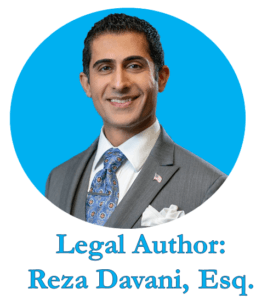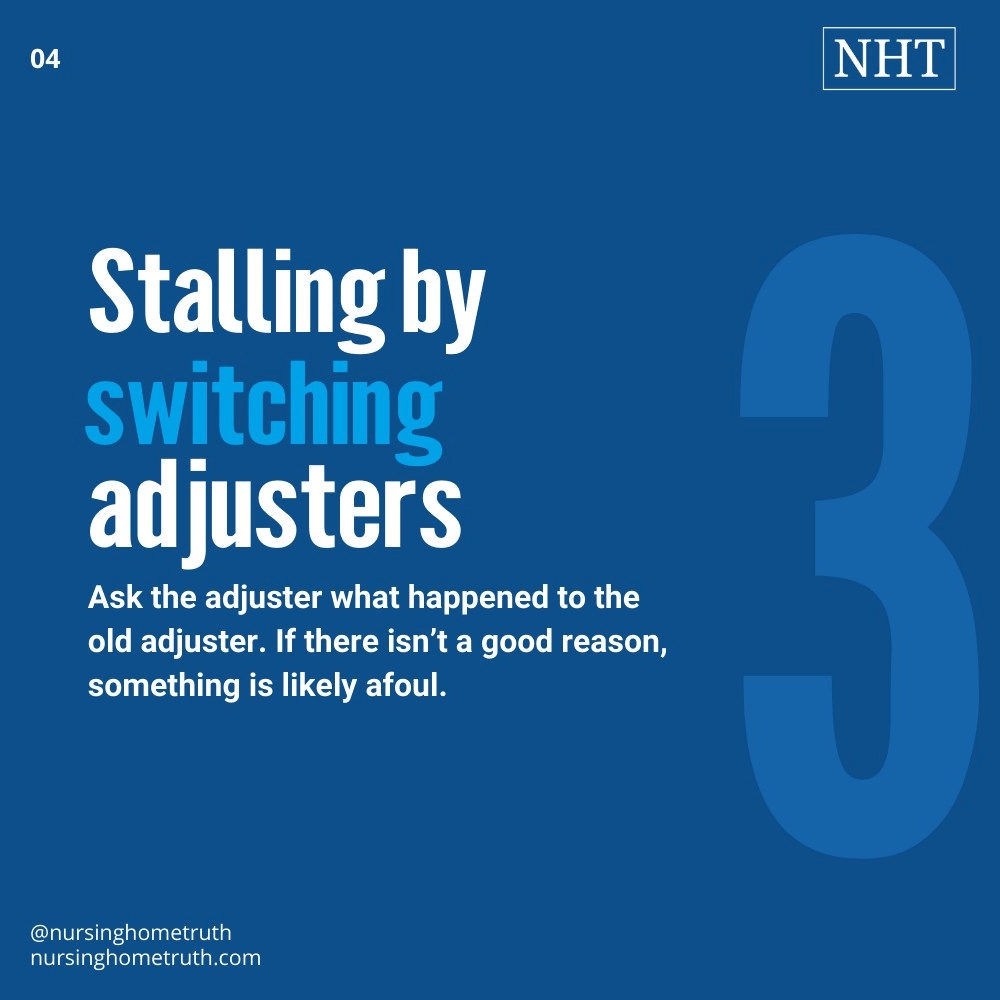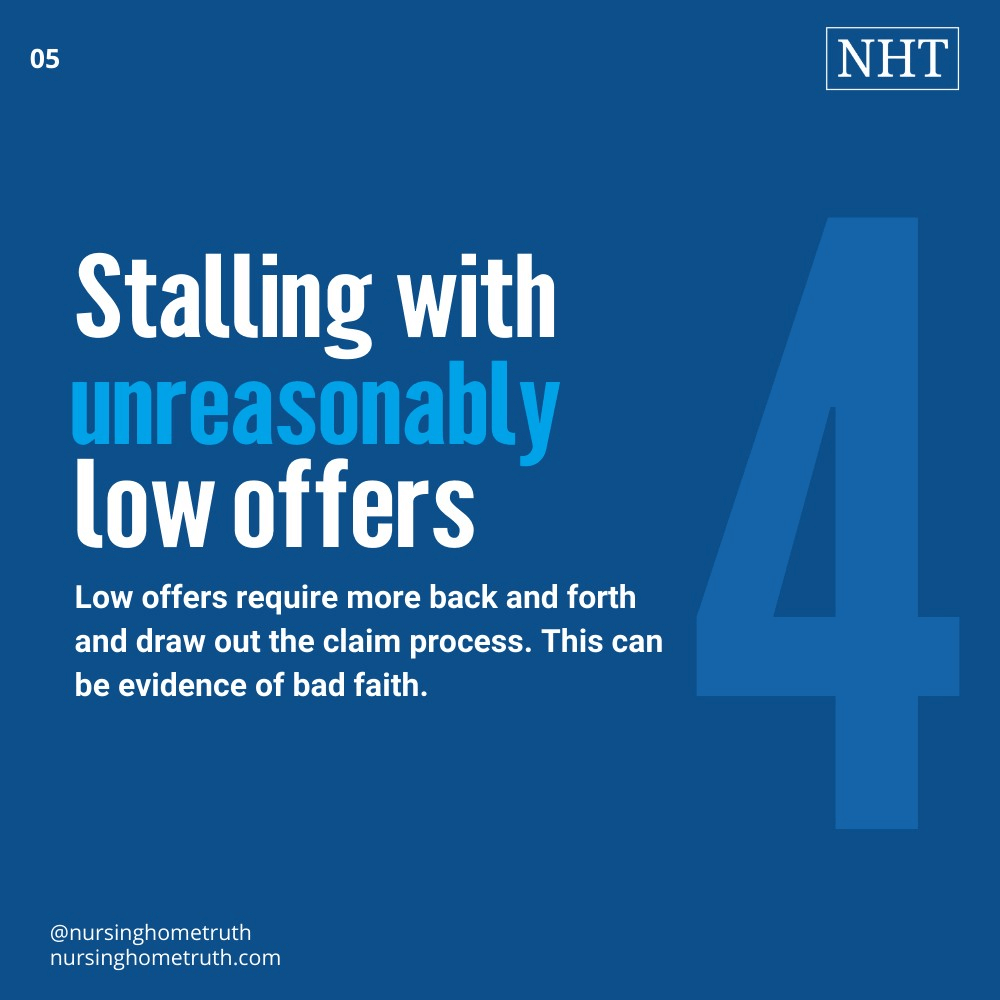Article Updated: March 1, 2022
Is the Insurance Company Stalling?
I don’t want to give the insurance company any benefit of the doubt, because 90%+ of the time insurance company delays are strategic.
But that means some of the time the insurance company is not stalling in bad faith.
In this article, I will dive into that for you and help you find out if an insurance company is stalling in your negotiations, and what you should do if they are.
Clickable Table of Contents
Insurance Company is Stalling
1 – Reasons An Insurance Company Might be Stalling
2 – Signs that An Insurance Company is Stalling
3 – What to Do if Insurance Company is Stalling
4 – How Long Can Insurance Company Stall Your Claim
Resources
5 – Stop The Insurance Company from Stalling
6 – About the Author
7 – Legal Help in Maryland & Nationally
Reasons An Insurance Company Might be Stalling
First let’s outline the different reasons an insurance company might be stalling. From there, we can narrow down which reasons are an indication that the insurance company is stalling for a strategic edge.
Some of the reasons include:
Stalling to Conduct Due Diligence
The insurance adjuster has to collect evidence to make a decision on a file or claim. Maybe the insurance company is conducting that due diligence.
Bad Adjusters Stall
Let’s face it, in every profession, there are people who are bad at their job. Insurance companies and adjusters are no exception. It’s possible the adjuster is just lazy.
Busy Adjusters Stall
On the other hand, the adjuster may be overwhelmed. Insurance companies are in the business of squeezing people, and they do it to their own employees, too. Maybe your adjuster has too many claims to juggle and can’t keep up.
Stalling as Company Policy
Some insurance companies promote a system of stalling to drag claims out and avoid playing claims. Very good chance that if you have no other facts, this is what the insurance company is doing in stalling in your case.
Stalling to Burn Your SOL.
You have a filing deadline, which is your statute of limitations. By dragging out your claim, your SOL is starting to expire. The adjuster may get lucky and stall long enough that you miss your SOL and no-longer have a valid claim. This is a grimy move, and the insurance company will play every dirty trick they can on you.
Stalling to Discourage Claims
By dragging things out and making you jump through hoops, you may wear out and give up and not pursue the claim. A percentage of people will do that, the insurance company knows this, so stalling is a viable business model for them.
Stalling to Fade Evidence
If the insurance company stalls for long enough, certain evidence will cease to exist, such as tire marks on the road, bruises that are not photographed, and other evidence. The adjuster can be playing this out so your claim is weaker, from an evidentiary standpoint.
Signs that An Insurance Company is Stalling
Now, let’s review some of the reasons that insurance companies stall which are indicative of foul play.
Stalling via Piecemeal Evidence Requests
If the insurance adjuster is asking for evidence and documents one slice at a time, every time you speak with the insurance company, this is a red flag for foul play.
Stalling by Asking for Irrelevant Things
If it is obvious from the requests that the insurance company is asking for pieces of evidence that do not really help evaluate your claim, this is another red flag.
These wild goose chases are intended to be fools errands that keep you busy and wear you out.
Stalling by Switching Adjusters Repeatedly
If the insurance company is stalling by switching adjusters on you repeatedly, be very wary. Ask the adjuster what happened to the old adjuster. If there isn’t a good reason, something is likely afoul.
Stalling With Unreasonably Low Offers
This is a common way in which insurance companies stall. They make low offers which require more back and forth and draw out the claim process. This can be evidence of bad faith.
Stalling via Lack of Contact
If the insurance company is not communicating with you timely, and responding to your contacts after days or weeks, it is likely stalling for a strategic edge.
This could be a busy adjuster, but a pattern of this over an extended period of time is commonly evidence of something more problematic than under-staffing.
What to Do if Insurance Company is Stalling
Here’s my best list of what I would do if I was not a lawyer and an insurance company was stalling on my claim. Hopefully this gives you some guidance.
However, I must say this is not legal advice and you have to speak with a lawyer to get guidance on your specific claim and how to handle it.
Stop Stalling by Asking for Complete List of Documents Needed
One thing you can do if an insurance company is stalling is to write a letter requesting a full outline of everything it needs from you to evaluate your claim.
This will prevent stalling via piecemeal document requests, and will comply with my second recommendation, immediately below.
Stop Stalling by Doing Follow-Ups in Writing
Phone calls get recorded in the insurance file (if the insurance company is doing it’s job, which it isn’t always doing).
However, in my experience, written communications are more impactful, and contain a more definitive narrative of what is being said.
For that reason, one good strategy is to paper the file heavily with contacts which can be used as later evidence of bad faith, and also as proof that it’s the insurance company that is stalling, not you lacking diligence.
Stop Stalling by Asking for Supervisor
Sometimes, you could be dealing with a lone wolf adjuster who is not acting in the insurance companies best interest.
Escalating the issue and stall tactics to a supervisor can get an extra set of eyes on your claim and keep the adjuster more honest and diligent.
This is not a weapon of choice, though, because that adjuster will be angry at you and ultimately will be the one making offers on your claim.
Stop Stalling by Contacting the Insurance Commissioner
Each state has an insurance commissioner, and a process through which bad insurance companies and bad insurance company conduct (such as stalling) can be reported.
If there is ample evidence of bad faith in your case, you can report the issue to the insurance commissioner.
In the past, when I’ve done this, it has resulted in quick responses from the insurance company.
Again, this is not a weapon that can be used unless the insurance company is doing some serious stalling in your claim, and without good reason.
Stop Stalling by Filing a Lawsuit
The best weapon any claimant has to stop an insurance company from stalling is to file a lawsuit.
Many times I settle a claim within a few months of filing the lawsuit.
This is because filing a lawsuit shows that you won’t sit on your loins and let the insurance company stall without repercussions.
How Long Can Insurance Company Stall Your Claim
Without getting into the nuances of each state’s law, one commonality exists with respect to measuring how long an insurance company can stall a claim.
That is the rule of good faith or, if it is not followed, bad faith.
The insurance company must evaluate your claim in good faith, or it is subject to a bad faith claim.
In some states, a bad faith claim has teeth. In other states, a bad faith claim is window-dressing in terms of a recoverable, viable claim.
The definition is flexible, because claims are flexible. It may take an insurance company a much longer time to evaluate complex case, and it would not make sense to set a hard time limit on that.
In short, how long an insurance company can stall a claim will vary depending on the state, the claim, and the reasons for the delay.
Stop The Insurance Company from Stalling
Hopefully the insurance company has not successfully stalled for so long that you have your back against the wall with pending deadlines. If that’s you, it will be really difficult for you to find a lawyer to take the case.
I say that because the only bullet proof way to stop an insurance company from stalling is showing them that your bark has bite.
How do you do that? With threats that are not empty, which means waving your litigation sword around. That sword is your lawyer.
If you’re tired of the insurance company yanking your chain, lawyer up and get the help you deserve.
Warmly,
Reza Davani, Esq.
State Bar No.: #1212110211
Federal Bar No.: #30168
Cell phone: (301) 922-4598
Email: reza@nursinghometruth.com

Author Bio
About the Author
This nursing home and medical malpractice article was written by Baltimore, Maryland nursing home attorney Reza Davani, Esquire. Mr. Davani received his Juris Doctor degree from a Tier 1 law school, the University of Maryland Francs King Carey School of Law. He received his first license to practice law from the State of Maryland’s Court of Appeals (MD State License No. 1212110211), and just four months later received a federal law license from the United States District Court for the District of Maryland (Federal License No. 30168).
Mr. Davani has been practicing law for over 10 years. He began practicing law by helping clients as a sanctioned student lawyer before receiving his law license, and second chaired his first jury trial in federal court before even graduating law school. He is a registered member of the Maryland Association for Justice (MAJ), the American Bar Association (ABA), the American Association for Justice (AAJ), and was formerly on the MAJ’s Legislative Leader’s Circle.
Mr. Davani has taken over 20 cases to trial in state and federal court, and favorably settled well over 100 cases for injured victims. He has personally helped his clients recover over $15,000,000 in personal injury, medical malpractice, and nursing home abuse settlements and verdicts in Maryland and other states. He is dedicated to fighting for justice, and welcomes the opportunity to help you.
Medical Malpractice Nursing Home Abuse Lawyer Near You in Maryland & Beyond
I can help you anywhere in Maryland, including Allegany County, Anne Arundel County, Baltimore City, Baltimore County, Carroll County, Calvert County, Caroline County, Cecil County, Charles County, Dorchester County, Frederick County, Garrett County, Harford County, Howard County, Kent County, Montgomery County, Prince George’s County, Queen Anne’s County, Somerset County, St. Mary’s County, Talbot County, Washington County, Wicomico County, and Worcester County.
I have helped clients in over a dozen jurisdictions, including California, Delaware, District of Columbia, Georgia, Illinois, Iowa, Massachusetts, Maryland, Mississippi, New Jersey, New Mexico, New York, North Carolina, Pennsylvania, South Carolina, Washington, and Virginia.
I help injured victims nationwide in all 50 states on a case-by-case basis via Pro Hac Vice.










